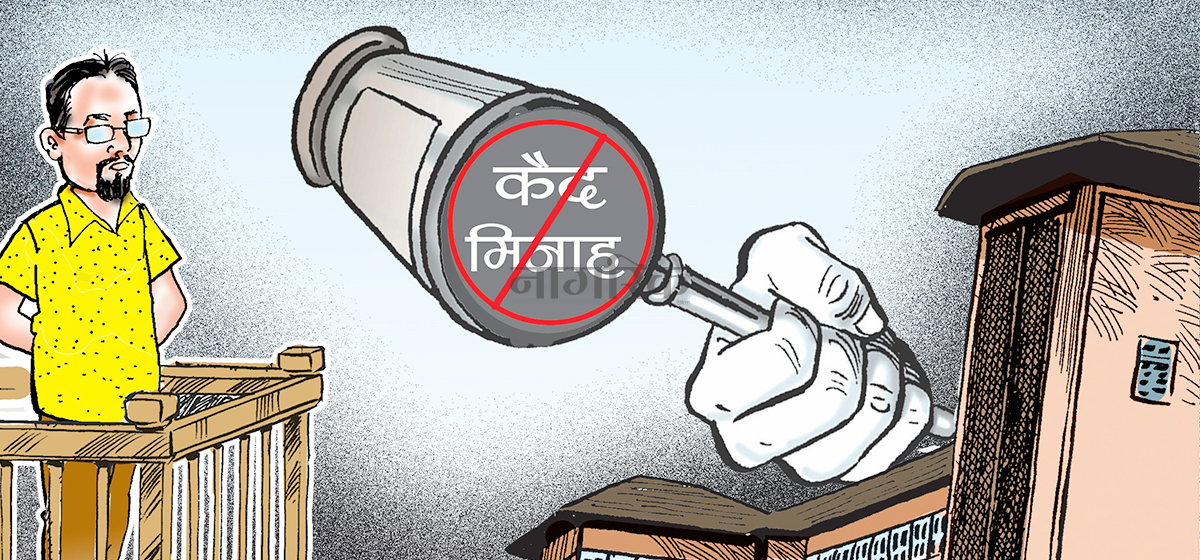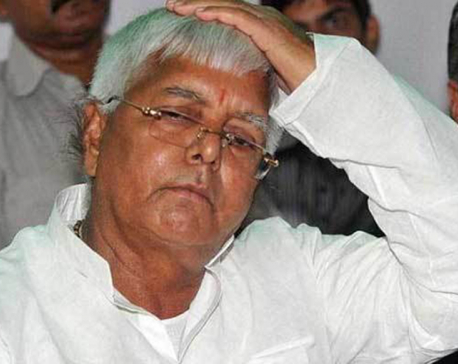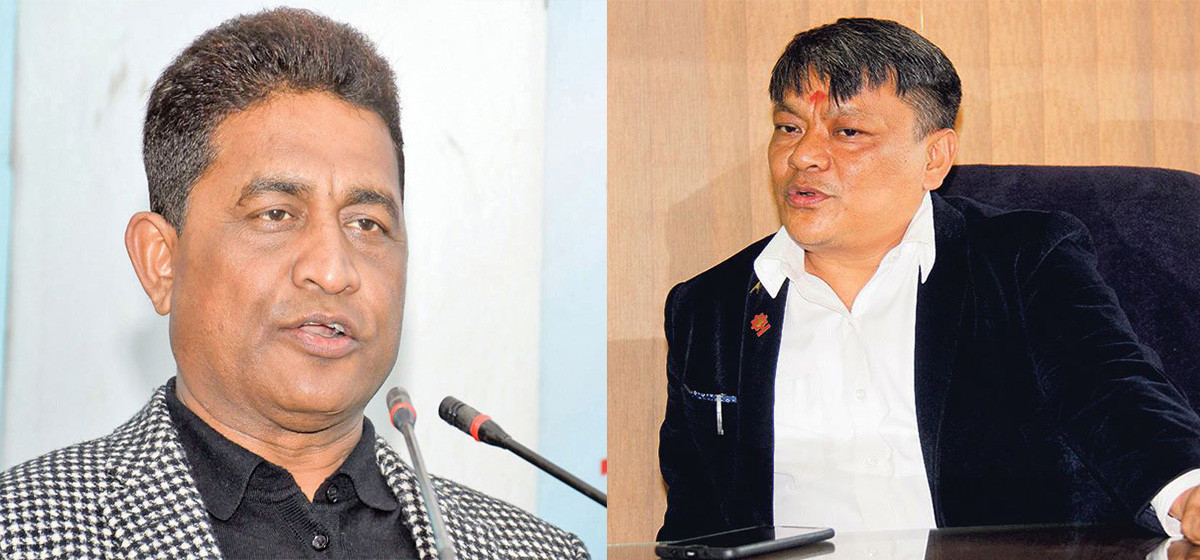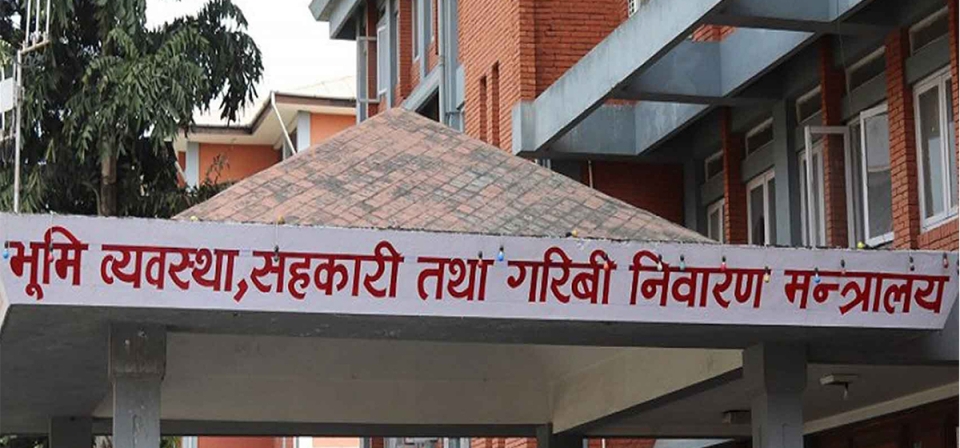
OR
Granting amnesty to those guilty in criminal cases unconstitutional: SC
Published On: August 18, 2023 04:45 PM NPT By: Bhasa Sharma

KATHMANDU, Aug 18: Regarding the government granting amnesty to the convicts of criminal cases based on political bargains, the Supreme Court (SC) has asked not to give criminal cases a political color. The SC has explained that it is against the constitution and the law to withdraw a criminal case by giving it a political color or to give amnesty to those who have been convicted by a court and sentenced to imprisonment. The government has been criticized for pardoning some people, including Resham Lal Chaudhary, who was pronounced guilty in the Tikapur incident.
The government pardoned Chaudhary, who was sentenced to life imprisonment in a criminal offense, without waiting for the full text of the SC verdict on the case. In the case related to the Tikapur incident, a joint bench of justices Anand Mohan Bhattarai and Nahkul Subedi decided that Chaudhary would be imprisoned for life on May 16. The full text of the SC verdict was made public on Wednesday.
However, the government, on the occasion of Republic Day 2080 BS (May 29,2022), also pardoned Chaudhary, who was convicted and sentenced to life imprisonment in the Tikapur incident. The victims of the incident have already filed a writ petition in the SC, seeking denial of pardon to Chaudhary. The writ petition is still pending at the SC. If the SC rejects the government’s decision to pardon the prison sentence, Chaudhary will have to go to jail again.
The SC said that if someone is punished for a crime and others are exempted from punishment for the same crime, then it would mean that laws are made only to suppress the ordinary people. The SC has explained that criminal justice will die if criminal offenders are given immunity under the guise of politics.
The SC upheld the verdict of the district court and high court and the government pardoned the sentence less than a week after Chaudhary was sentenced to life imprisonment. According to the decision of all three levels of court, Chaudhary should have been sentenced to imprisonment till Falgun 13, 2094 BS. The government pardoned Chaudhary 14 years before by violating the legal system.
According to the SC, the issue of violation of criminal law should not be resolved through a political agreement or political interest. The SC has ruled that a criminal offense cannot be provided a political cover. “The withdrawal of criminal cases as part of a political bargaining strategy or acts of granting amnesty in violation of the established values and legal system and making a mockery of it, seem to be contrary to the valid principles of the constitution, laws and criminal justice of the country,” the SC verdict reads. The activities prohibited by the criminal laws of the country are considered as criminal offenses.
The SC has ruled that the Tikapur incident was criminal in nature. From a moral or social point of view, there is a different conclusion, but from a legal point of view, there is no alternative to define the violation of criminal law as a criminal offense. “If any act prohibited by the criminal law is done with criminal intent, it is a basic principle of constitution that it should be addressed through the criminal justice system,” the SC verdict reads, “Giving immunity to an act like taking lives of innocent and unarmed people for no reason or carrying out mass killings for political or any other reason turns it into a protector of criminals.”
The main responsibility of the state is to protect the life and freedom of the citizens. If the state is distracted from its duties, there is a risk that the law and order will fall into the hands of the perpetrators. “The lives of the voiceless, weak and innocent citizens are always at risk, the victims will become more victimized and the unfortunate situation will be created where the perpetrators will be able to walk freely in society,” the full text of SC’s verdict reads, “This bench has drawn serious concern to the fact that governmental agencies that implement laws, including courts and judicial bodies, should be sensitive to prevent such an unexpected situation from occurring.”
In a democracy, everyone can raise and address their voices in a peaceful and organized manner. But the SC has made it clear that criminal law will take its action if violence is resorted to instead of peaceful means. “Inciting, abetting, conspiring, planning or otherwise participating in violence under any pretext is not tolerated by the country's criminal laws.”
The SC is of the opinion that when criminal acts are given a political form through the misuse of political power, the democratic governance system and the rule of law have not been strengthened. By politicizing crime, the perpetrators have been exempted from criminal liability. It is mentioned in the verdict of the SC that by giving political color even to heinous criminal offenses, the tendency to commit crimes in the interests of politics will increase when access to governmental power is achieved. “If the criminal offenders get political protection, the unexpected situation arises where the person who committed the criminal act prohibited by the criminal law of the country will walk freely with a loud voice in society.”
The SC has said that considering criminal activities as political in nature and using them as a means to achieve political objectives is a violation of the constitution. “A crime is a crime no matter who commits it. The criminal law does not recognize powerful persons, positions or their status. Crime has no argument or theory. The concern is not with the doer, it is with the action,” said the SC, “The criminal law does not distinguish between crimes committed by political persons for political purposes and crimes committed by other persons for criminal purposes. The perpetrator of the crime must bear the responsibility created.”
The SC is of the opinion that trying to classify a heinous crime like murder as a political crime is pointless and unjustified. “Such a classification may reveal an ugly and frightening scenario of politicization of crime, which classifies any criminal acts committed by people who can gain access to politics or influence politics as political crimes,” the verdict of SC explains, “If the state promotes such a situation, it should be considered as a violation of the values of the rule of law in such a state system, so the stakeholders should be responsible, alert and sensitive.”
A comment was made in the bench during the debate on the matter of the Tikapur incident regarding the police as the victims and the police should investigate the crime. The SC is of the view that it is illogical to say that the police cannot investigate a criminal incident in which a police officer has been killed and the police is the victim.
Based on reasonable grounds, and evidence, in the case of Sita Ram Chaudhary, Ganga Ram Dagaura Chaudhary, who are among the appellant defendants, five years imprisonment was decided by the Kailali District Court. The High Court Dipayal upheld the decision of the district court. The SC acquitted the accused. In the case of other appellant defendants Resham Lal Chaudhary, Hari Narayan Chaudhary, Pradip Chaudhary, Shrawan Chaudhary and Bir Bahadur Chaudhary, the SC ruled that they should serve a sentence for life.
You May Like This

HURPES demands not to pardon guilty of Tikapur incident
KATHMANDU, March 12: Human Rights and Peace Society (HURPES) has demanded not to withdraw a case with a purpose to... Read More...

Ex- Bihar CM Yadav found guilty in fodder scam case, to be sentenced on Jan 3
NEW DELHI, Dec 23: Former chief minister and influencing leader of Bihar state, Lalu Prasad Yadav has been found guilty... Read More...

Petition against govt plan to withdraw Tikapur cases
KATHMANDU, May 22: A writ petition has been filed at the Supreme Court on Sunday against the government's decision to withdraw... Read More...



Just In
- Five-match T20 series: first match between West Indies 'A' and Nepal starts today
- Govt yet to pay Rs 60 billion to contractors
- Nepal’s poorest district identified as Bajura, richest as Mustang
- Wind storm likely at a few places of Koshi and Sudurpaschim
- EVs adoption in Nepal surge in Nepal with government support measures
- Mayors' Forum urges Finance Minister Pun to settle electricity dues
- By-Election: Voting underway in Ilam-2 and Bajhang-1(a)
- Save the Children report highlights severe impact of air pollution on children















Leave A Comment